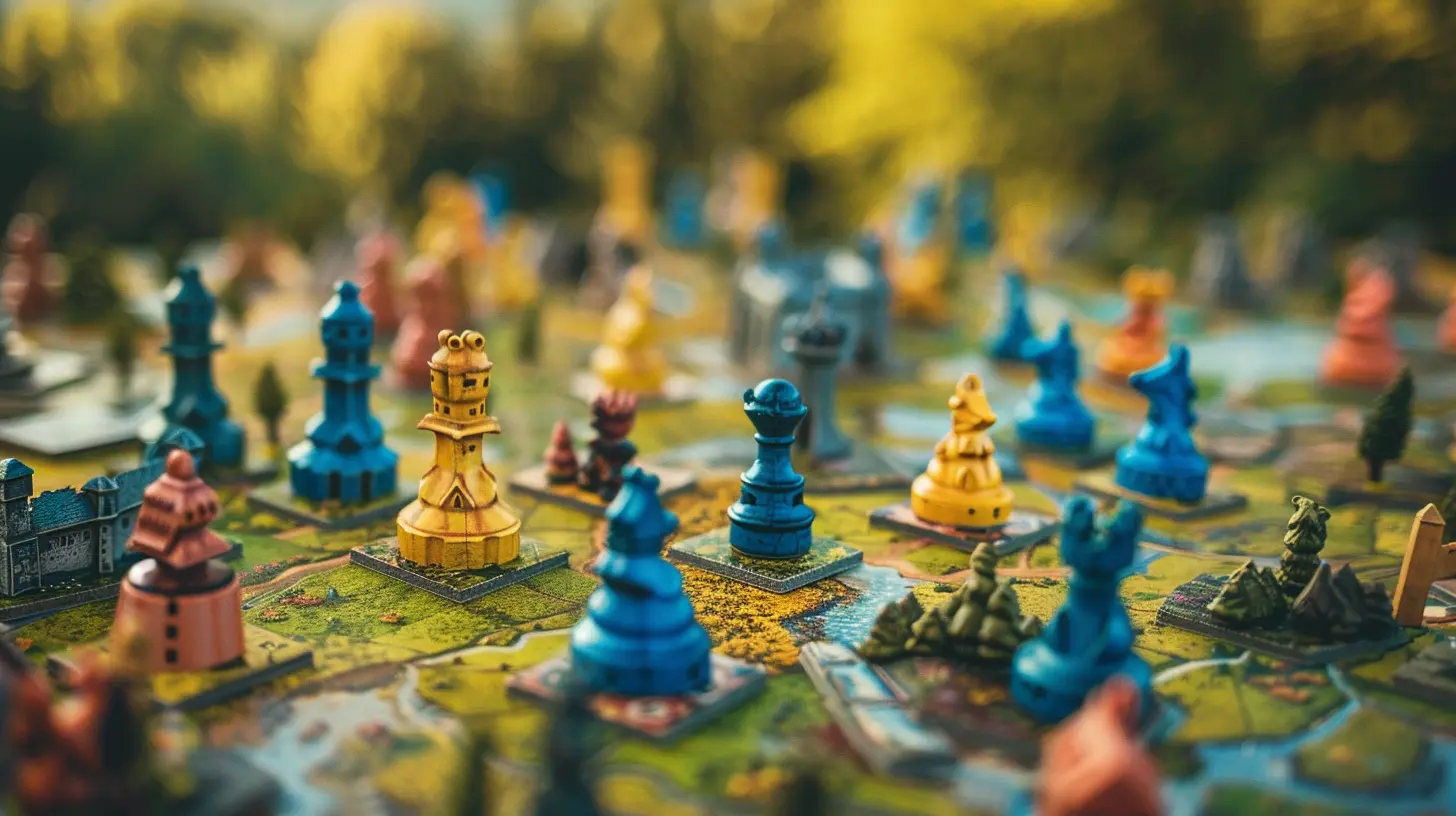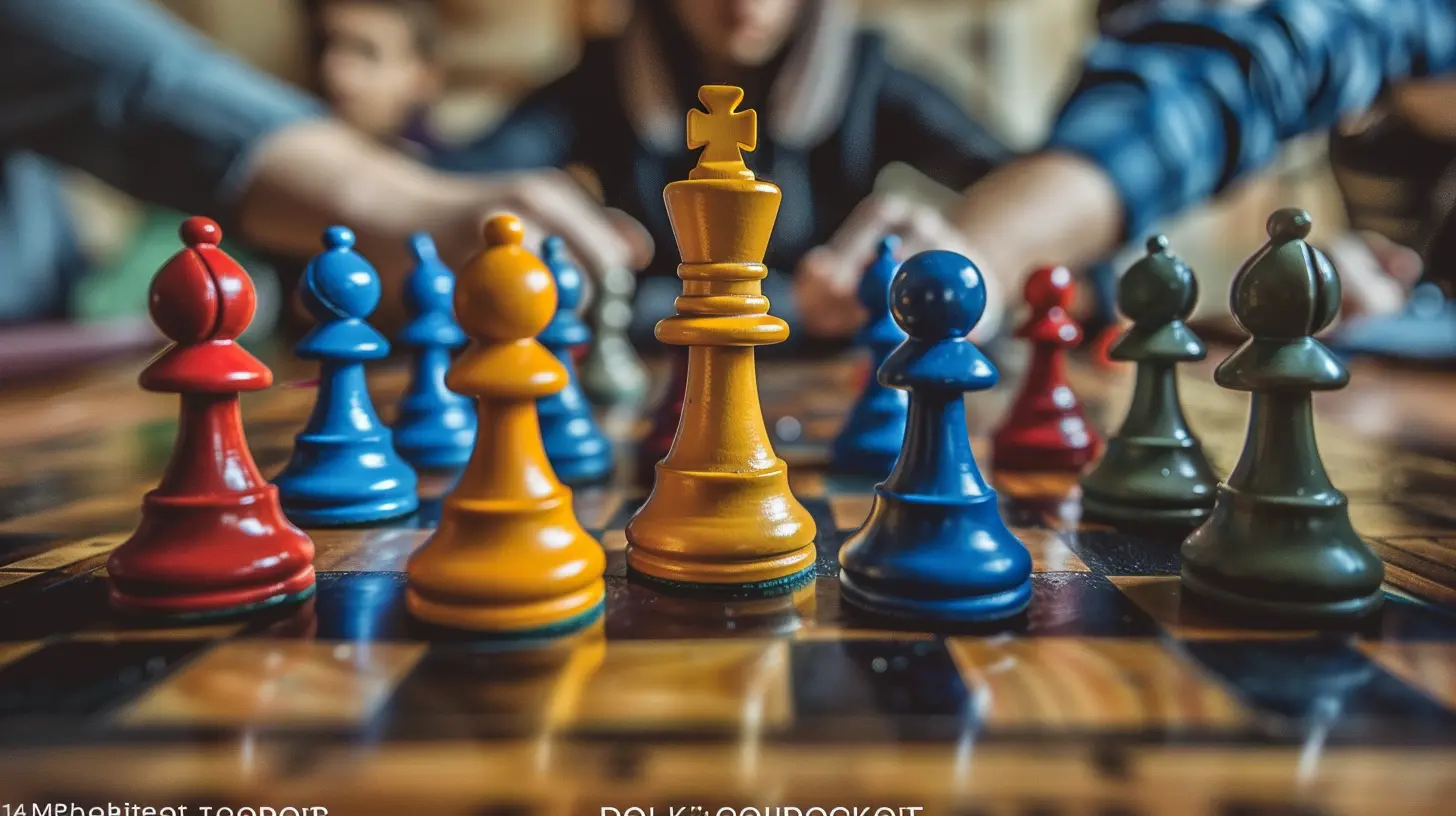From Strategy to Chaos: Managing Team Dynamics in Cooperative Games
22 September 2025
When it comes to video games, cooperative multiplayer is that delightful little corner of gaming where friendships are forged, relationships are tested, and patience is often stretched thinner than a piece of overcooked spaghetti. Don’t get me wrong—co-op games are fun. They’re thrilling, collaborative, and full of moments that make you laugh until your sides hurt. But let’s face it, managing team dynamics in these games can sometimes feel like trying to choreograph a dance routine with four drunk chickens.
Whether you’re tackling a tactical strategy game or diving headfirst into the chaos of a party game, the way your team handles their roles and communicates often spells the difference between sweet victory and fiery disaster. So, let’s talk about managing team dynamics in cooperative games. Buckle up, grab a headset, and let’s figure out how to keep your team from devolving into a bickering mess.
Why Team Dynamics Even Matter in Co-op Games
First off, let’s address the obvious: cooperative games are all about working together. Unlike competitive games where you’re busy dunking on your friends, co-op games give you a common goal. Whether you’re building civilizations, surviving a zombie apocalypse, or cooking gourmet dishes under the most ridiculous conditions (looking at you, Overcooked!), success hinges on teamwork.But, and this is important, teamwork isn’t just about showing up. It’s about synergy. You can’t slap together a group of people and expect miracles. Think of it like a band—sure, everyone might play their instrument well, but if the drummer’s offbeat and the guitarist won’t stop shredding during the chorus, the whole thing goes south. In co-op gaming, poor team dynamics can lead to miscommunication, inefficient gameplay, and, let’s be real, some passive-aggressive comments in the group chat.
The Usual Suspects: Common Challenges in Team Dynamics
So, what sabotages teamwork? Let’s break it down.1. The Lone Wolf Syndrome
We’ve all got that one friend who insists on going rogue. “Team? What team?” they mutter as they dart off into uncharted territory, leaving the rest of you scrambling to cover their position. Lone wolves may think they’re being heroic, but in games that demand coordination, they’re about as useful as a chocolate teapot.2. Leadership Tug-of-War
Every team needs a leader, right? But what happens when everyone on your team thinks they should be in charge? Suddenly, your tactical mission feels less like a game plan and more like a family dinner argument about who gets to carve the turkey. Too many cooks, as they say, spoil the broth (or, in this case, the quest).3. Over-Communicators vs. Silent Players
Some players treat voice chat like their personal podcast, narrating every move like they’re auditioning for a sportscaster gig. Others? Total radio silence. Finding a balance between too much and too little communication is crucial. Otherwise, it’s like trying to assemble IKEA furniture with instructions in a foreign language—confusing, frustrating, and inevitably ending in tears.4. Blame Games Galore
Got wiped out by that massive boss? Someone missed their cue during a timed objective? Cue finger-pointing galore. Blame games are a surefire way to turn team spirit into a full-on dumpster fire. Spoiler alert: yelling “It’s your fault!” at a teammate rarely boosts morale.
Strategies to Keep the Chaos in Check
Now that we’ve called out the usual culprits, let’s talk about solutions. How can your team go from hot mess to well-oiled machine? Don’t worry, I’ve got you covered.1. Assign Roles Early On
Let’s take a page out of Overwatch or League of Legends—assign roles based on each player’s strengths. Is one teammate great at strategizing? Bam, they’re the tactician. Got someone with lightning-fast reflexes? Hello, frontline fighter. When everyone has a clear role, it reduces confusion and makes sure no one’s stepping on each other’s toes.2. Embrace the Power of Communication
Good communication is the duct tape of co-op gaming—it holds everything together. But, and this is key, communication should be clear and concise. No need for a TED Talk every time you need to signal a move. Instead, use shorthand phrases and keep chatter focused on the mission. Pro tip: always agree on a way to alert teammates to urgent threats. “Oh no, aaaaaaah!” doesn’t cut it.3. Set Ground Rules for Play
Before you jump into the game, set some boundaries. Maybe you all agree that no one goes rogue or that arguments stay in the game. These ground rules act as a safety net and help keep emotions in check. Think of them like the unwritten rules of carpool karaoke—stick to them, and everyone has a good time.4. Practice Patience (Seriously)
Not everyone plays at the same skill level, and that’s okay. The key is to be supportive rather than critical. If your teammate messes up, offer constructive feedback instead of turning into that gym coach everyone hated in high school. Patience isn’t just a virtue; it’s your golden ticket to less rage-quitting.5. Celebrate the Wins (Big or Small)
Did your team survive the wave of enemies with only two health bars left? High fives all around. Celebrating even the smallest victories boosts morale and reminds everyone why you’re playing together in the first place—to have fun. Plus, it helps take the sting out of those inevitable defeats.
The Chaos Factor: Sometimes, It’s Half the Fun
Here’s the thing: as much as we aim for smooth teamwork, chaos is part of the charm in cooperative games. Some of the most memorable moments come from things going hilariously sideways. Maybe someone accidentally presses the self-destruct button, or the whole team gets wiped out because someone (not naming names) thought they could “totally handle” that mini-boss solo.Embrace the chaos. After all, co-op games are meant to be ridiculous, over-the-top, and a little bit messy. It’s what makes them so darn lovable.
A Few Games That Showcase Team Dynamics (For Better or Worse)
Need some examples of where team dynamics shine—or implode spectacularly? Here are a few:1. Overcooked! (and Overcooked! 2)
This culinary chaos simulator will test your multitasking and patience like no other. You’ll laugh, you’ll cry, you’ll accidentally set the kitchen on fire. The key to victory? Communication and clear role assignments. (Pro tip: designate a dish washer. Seriously.)2. Left 4 Dead 2
Zombie apocalypse? Check. Limited resources? Double check. This game demands strong coordination as you and your team navigate swarms of undead. Lone wolves beware—you won’t survive long without the team.3. Sea of Thieves
Ever tried steering a pirate ship with three other people shouting conflicting directions? Yeah, it’s exactly as chaotic as it sounds. Sea of Thieves is a perfect example of how working together can make—or break—your voyage.4. It Takes Two
This award-winning co-op adventure is built entirely around teamwork. Its puzzles and mechanics force you to rely on your partner, which means strong communication is non-negotiable. It’s charming, clever, and a masterclass in collaboration.Final Thoughts: Keep Calm and Co-op On
At the end of the day, managing team dynamics in cooperative games is more art than science. It’s about finding that sweet spot between structure and spontaneity, strategy and chaos. Sure, there’ll be moments when you want to chuck your controller across the room because someone forgot (AGAIN) to revive you. But there will also be moments of triumph, laughter, and camaraderie that remind you why you love co-op games in the first place.So, the next time you and your crew boot up a multiplayer game, remember: you’re in this together. Be patient, communicate, and maybe bring snacks to soften the blow of inevitable arguments. Who knows? You might just come out of it a stronger team—and with some hilarious stories to boot.
all images in this post were generated using AI tools
Category:
Cooperative GamesAuthor:

Luke Baker
Discussion
rate this article
1 comments
Paxton McFee
Embracing both strategy and chaos is essential; teamwork thrives on adaptability, communication, and understanding individual strengths in cooperative games.
September 28, 2025 at 2:34 PM

Luke Baker
Thank you for your insightful comment! I completely agree that adaptability and effective communication are key to harnessing both strategy and chaos in cooperative games.


